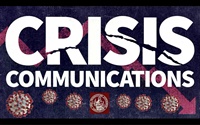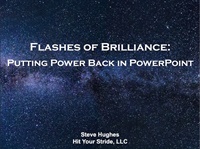
- Faculty:
- Daniel J. Siegel, Esq.
- Duration:
- 1 Hour 1 Minutes
- Format:
- Audio and Video
- Short Description:
- This program will highlight the newest features of Adobe Acrobat Pro while also demonstrating some of the features that make it a must-have for every law firm.

- Faculty:
- Roger J. Dodd, Esq.
- Duration:
- 1 Hour 30 Minutes
- Format:
- Audio and Video
- Short Description:
- In a series of four 90-minute webinars, Roger Dodd presents a completely integrated cross-examination system taught via learnable concrete principles. In each webinar Roger illustrates key principles and techniques of cross-examination to implement at trial and at depositions (in-person or online). His examples are based on dozens of real-life examples. Even if you don’t take the whole series...

- Faculty:
- Jeffrey R. Schoenberger, Esq.
- Duration:
- 1 Hour 4 Minutes
- Format:
- Audio and Video
- Short Description:
- Legal technology is a double-edged sword; it can cause malpractice, or it can guard against it! Most of the top causes for malpractice and grievance issues are related to organization, communication, and law office management. As such, they are largely preventable. How do you properly communicate confidential information with clients? How do you properly negotiate documents with opposing counsel?

- Faculty:
- Steven L. Taylor
- Duration:
- 1 Hour 33 Minutes
- Format:
- Audio and Video
- Short Description:
- This 90-minute presentation will review the Brady standard requiring prosecutors to turn over exculpatory evidence to the defense and will discuss some cases in which Brady has played a role, including the Brady case itself, the Duke Lacrosse case, and the Ted Stevens case. Timeline: (1) Overview of Brady Standard (35 mins) (2)&nb

- Faculty:
- Steve Hughes
- Duration:
- 1:01
- Format:
- Audio and Video
- Short Description:
- What if you could stand in front of an audience and deliver a presentation so powerful it captivated them from start to finish? You can if you understand body language, how people think, and what causes people to pay attention. This dynamic program combines the time-tested wisdom of the Greek philosophers with the latest insights from today’s leading storytellers: Madison Avenue and Hollywoo

- Faculty:
- Lawrence Eichen, Esq.
- Duration:
- 1:02
- Format:
- Audio and Video
- Short Description:
- This course provides an overview of artificial intelligence and the features of ChatGPT. It discusses how attorneys can use ChatGPT and other AI platforms to assist with client intake, document review, research, drafting, editing, and brainstorming like never before.

- Faculty:
- Steven L. Taylor
- Duration:
- 1 Hour 13 Minutes
- Format:
- Audio and Video
- Short Description:
- Adopted in 2010, Criminal Rule 16(K) mandates that the parties disclose their expert-witness reports at least 21 days before trial. If the 21-day rule is violated, the remedy at trial is exclusion to the extent there was non-compliance, a mandatory remedy reinforced and emphasized by the Ohio Supreme Court when it addressed the rule in State v. Boaston, 160 Ohio St.3d 46, 2020-Ohio-1061.

- Faculty:
- Mark Weaver, Esq
- Duration:
- 1:33
- Format:
- Audio and Video
- Short Description:
- Facing the news media or an angry public can be nerve-racking even under the best conditions. Now, Ohio prosecutors are called to communicate complex information about the law, public protection, and local government action to panicked citizens. Effective crisis communications is even more important during a global pandemic. This OPAA webinar will feature timely, practical advice ...

- Faculty:
- Roger J. Dodd, Esq.
- Duration:
- 2:00
- Format:
- Audio and Video
- Short Description:
- To litigate in the COVID-19 era you need more than the traditional cross-examination techniques you’ve always relied on. COVID-19 has dramatically changed the face of litigation...kick-starting a technology shift in the practice of law that has already taken place in almost every other area of society. Zoom, Webex, and other remote platforms are now a regular part of the litigation and ...

- Faculty:
- Roger J. Dodd, Esq. | Olivia Espinosa | Steve Hohman
- Duration:
- 1 Hour 32 Minutes
- Format:
- Audio and Video
- Short Description:
- Professional improv actor and teacher, Steve Hohman, and legendary author and trial lawyer, Roger J. Dodd, connect the disciplines of cross-examination and improvisation. This engaging and innovative 90-minute video takes you through easy-to-follow strategies for the courtroom and introduces practical improvisational acting skills to help master Dodd's world-famous cross-examination techniques

- Faculty:
- Roger J. Dodd, Esq.
- Duration:
- 1 Hour 29 Minutes
- Format:
- Audio and Video
- Short Description:
- In a series of four 90-minute webinars, Roger Dodd presents a completely integrated cross-examination system taught via learnable concrete principles. In each webinar Roger illustrates key principles and techniques of cross-examination to implement at trial and at depositions (in-person or online). His examples are based on dozens of real-life examples. Even if you don’t take the whole series...

- Faculty:
- Lawrence Eichen, Esq.
- Duration:
- 1:02
- Format:
- Audio and Video
- Short Description:
- Imposter Syndrome is a phenomenon whereby individuals doubt their skills, talents, or qualifications.

- Faculty:
- Erin M. Aiello, Esq.
- Duration:
- 1:10
- Format:
- Audio and Video
- Short Description:
- There is a significant correlation between domestic/intimate partner violence and violence against animals (often referred to as “the link”). We also know that victims of domestic violence will often refuse to leave their abusers out of fear that their beloved pet would be harmed, and not having a safe place that will shelter them both. One study found that at least 87% of ...

- Faculty:
- Tom O'Connor, Esq.
- Duration:
- 1 Hour 4 Minutes
- Format:
- Audio and Video
- Short Description:
- Most attorneys in private practice are employed by law firms with fewer than 20 lawyers and, in fact, half of all U.S lawyers in private practice are solos. When e-discovery came on the scene, these attorneys viewed it as the exclusive domain of large firms with large cases in Federal court. But with the increase in digital activity by people in all areas of their lives, e-discovery has become an

- Faculty:
- Philip Bogdanoff, Esq.
- Duration:
- 2 Hours
- Format:
- Audio and Video
- Short Description:
- Prominent South Carolina attorney Alex Murdaugh was convicted of Murder and he filed a motion for new trial alleging that the clerk of courts tampered with the jury by advising them not to believe Murdaugh’s testimony and pressuring them to reach a quick guilty verdict. After an evidentiary hearing where a juror indicated they were influenced by the clerk to return a guilty verdict, the judge overruled the motion finding that there was insufficient evidence to overturn the jury’s verdict.

- Faculty:
- Philip Bogdanoff, Esq.
- Duration:
- 1 Hour 59 Minutes
- Format:
- Audio and Video
- Short Description:
- Prominent South Carolina attorney Alex Murdaugh was convicted of Murder and he filed a motion for new trial alleging that the clerk of courts tampered with the jury by advising them not to believe Murdaugh’s testimony and pressuring them to reach a quick guilty verdict. After an evidentiary hearing where a juror indicated they were influenced by the clerk to return a guilty verdict, the judge overruled the motion finding that there was insufficient evidence to overturn the jury’s verdict.

- Faculty:
- Charles H. Rose, III
- Duration:
- 1:29
- Format:
- Audio and Video
- Short Description:
- FRE 611 addresses witnesses and establishes the manner and scope of witness testimony during cross examination. While FRE 611 governs the form of cross examination questions, many other evidentiary rules also impact your ability to impeach witnesses. Prosecutors must understand the legal doctrine behind the rules governing impeachment. This presentation will show attendees how to begin ...

- Faculty:
- Philip Bogdanoff, Esq.
- Duration:
- 1 Hour 1 Minutes
- Format:
- Audio and Video
- Short Description:
- As a prosecutor, we all have our horror stories about witnesses. In this presentation, we will examine issues relating to witnesses including enforcing a subpoena of a witness, impeaching your own witness, witness competency, material witnesses, court witnesses, recalling witnesses, and other issues relating to witnesses. We will also review case law regarding witness tampering by defense

- Faculty:
- Philip Bogdanoff, Esq.
- Duration:
- 1 Hour 3 Minutes
- Format:
- Audio and Video
- Short Description:
- The admissibility and persuasiveness of expert testimony will often make or break a case. Prosecutors often rely on expert witnesses to prove the defendant’s guilt or innocence. In this presentation we will examine the admissibility of expert testimony both by the State and the defense. We will review various cases involving the admissibility of forensic evidence that can ...

- Faculty:
- Nicholas Taylor
- Duration:
- 1 Hour 3 Minutes
- Format:
- Audio and Video
- Short Description:
- Imagine that you could find and have admitted as evidence virtually any public historical web content, and without having to rely on discovery from the opposing party. Imagine that you could thereby establish when specific information was first published, updated, or available online - e.g., patent disclosures, marks and copyrighted materials, terms of service, advertised claims regarding products

- Faculty:
- Steve Hughes
- Duration:
- 1:01
- Format:
- Audio and Video
- Short Description:
- Smart attorneys know that it’s not enough to have the best argument or the perfect solution—you also need to be able to communicate ideas effectively. This is certainly the case when it comes to PowerPoint presentations. Flashes of Brilliance is a dynamic program that shows you how to create and deliver winning visual presentations regardless of your design...

- Faculty:
- Deborah Reid, Esq.
- Duration:
- 59 Minutes
- Format:
- Audio and Video
- Short Description:
- Copyright was created as a legal response to the invention of the printing press to protect authors and their writings. It continues to evolve in response to advances in technology. In this webinar, you will learn how the definitions of ‘author’ and ‘writing’ have expanded to include or exclude new technologies. We will explore issues of authorship and artificial ...

- Faculty:
- Katy Goshtasbi, Esq.
- Duration:
- 1:02
- Format:
- Audio and Video
- Short Description:
- Our personal brands make us unique as lawyers. They also create an environment where conflict reigns and diversity is lacking if the personal brand distinctions are not clarified and harnessed well. The result is a happier workforce, collaborative work environment, maximum efficiency and better attorney-client relationships and attorney- attorney relationships. In this interac

- Faculty:
- Roger J. Dodd, Esq.
- Duration:
- 1:30
- Format:
- Audio and Video
- Short Description:
- In a series of four 90-minute webinars, Roger Dodd presents a completely integrated cross-examination system taught via learnable concrete principles. In each webinar Roger illustrates key principles and techniques of cross-examination to implement at trial and at depositions (in-person or online). His examples are based on dozens of real-life examples. Even if you don’t take the whole series...

- Faculty:
- Becky Howlett, Esq | Cynthia Sharp, Esq.
- Duration:
- 1 Hour 4 Minutes
- Format:
- Audio and Video
- Short Description:
- The ABA and Hazelden Betty Ford Foundation’s (ABA/HBFF) groundbreaking 2016 study confirmed devastatingly high rates of both mental health concerns and substance abuse amongst lawyers. For example, between 21-36% of attorneys qualify as problem drinkers—3-5x higher than the general population. Moreover, 25-30% of attorney disciplinary matters, 60% of all malpractice claims, and 85% of
Please wait ...

